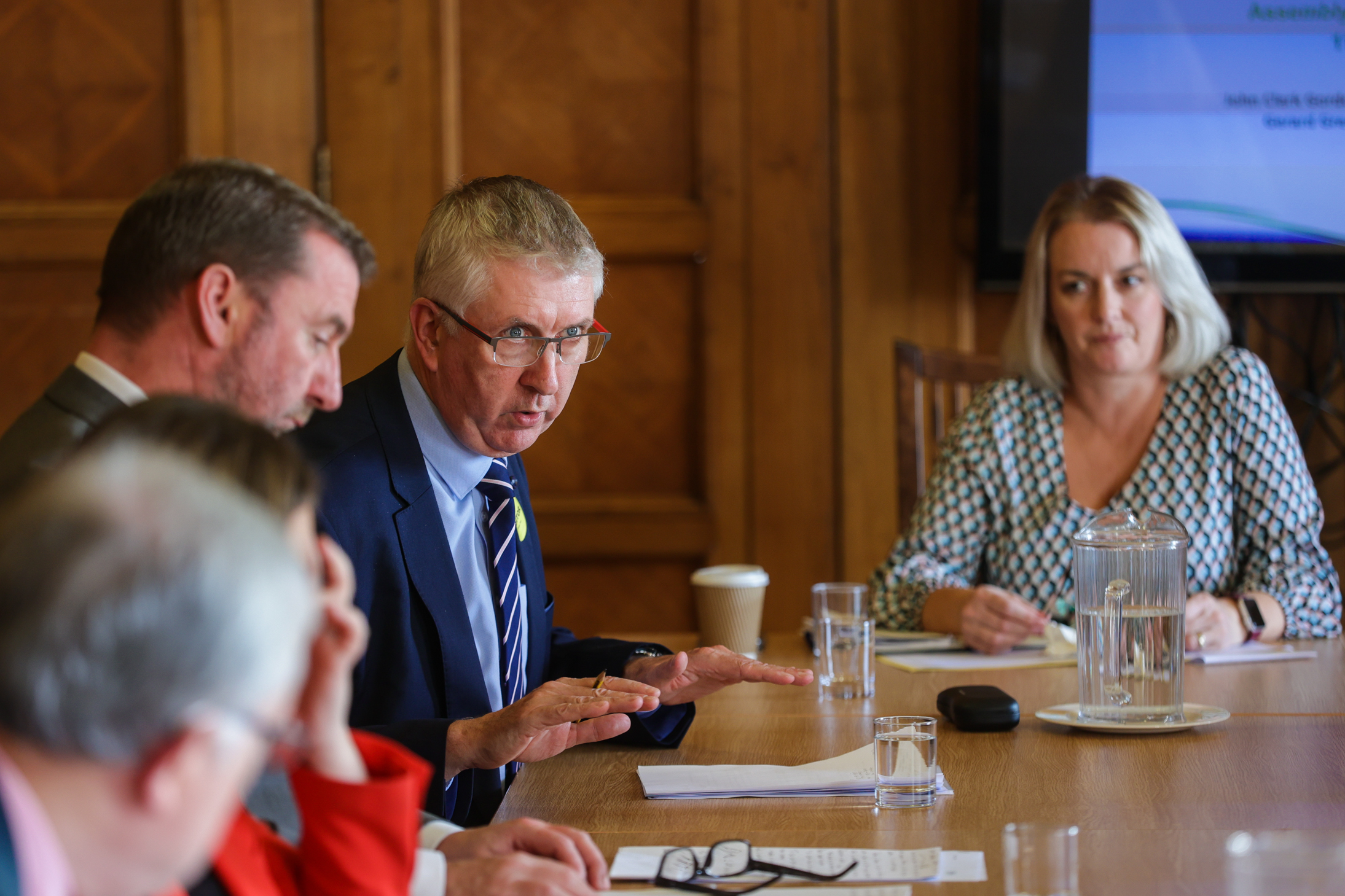
Emergency Stormont meeting held over community pharmacy medicine shortages and funding crisis
MLAs told 99% of community pharmacies struggling to source medicines
An emergency summit took place at Stormont as MLAs were briefed on expected widespread medicine shortages this winter which are being exacerbated by an underlying funding crisis in community pharmacy.
At the cross-party meeting of MLAs, representatives from the community pharmacy sector revealed that 74% of pharmacists were spending between 1-3 hours per day sourcing medicines, with shortages already on approximately 1000 medicine packs per pharmacy per month.
The committee was briefed by Community Pharmacy NI Chief Executive, Gerard Greene and CPNI Board Director, John Clark who, after issuing a critical supply warning last week, told MLAs that the situation will deteriorate further as the sector’s underlying funding crisis is set to worsen when the Assembly and Executive are formally dissolved on Friday.
With reported shortages already impacting medicines used to treat health conditions including osteoporosis, high blood pressure, insomnia, mental health and coronary conditions, the sector reports that the very core function of medicines supply is on the verge of collapseand an emergency intervention is needed within days.
Beyond October, MLAs were told the next Health Minister must take steps to modify Northern Ireland’s Drug Tariff, which is the payment mechanism used to pay pharmacists for the service they provide, so that long-term protections can prevent against future medicine supply pressures.
Gerard Greene, Chief Executive of Community Pharmacy NI said:
“As medicine supply pressures deepen and the sense of concern builds, we have taken the opportunity to give elected representatives a full account of the gravity of the situation in terms of the very real health and patient safety concerns that are arising rapidly.
“This is just one symptom of an under-lying problem. Community pharmacy is operating with reduced funding of £20-30 million this year compared to each of the last two years, and that is before rising costs are factored in. The Department’s proposed £5.3 million falls far short of what is needed at this time to enable the service to be maintained and for pharmacies to be able to buy the medicines being prescribed from wholesalers.
“The reality is that the Northern Ireland Drug Tariff, has never been designed to suit the health needs of the local population. Now, medicine prices of many common generic medicines are spiraling out of control and community pharmacy simply cannot be expected to meet these pressures without proper assistance from the Department.
“We remain fully cooperative and hope that an adequate solution can be found but it simply must reflect the real-life financial costs of ever-rising medicine costs.”

John Clark, Board Director at Community Pharmacy NI; Pam Cameron MLA, Chair of the All-Party Group on Community Pharmacy; and Gerard Greene, Chief Executive of Community Pharmacy NI.
Pam Cameron MLA, Chair of the APG on Community Pharmacy said:
“I am deeply alarmed by unfolding funding crisis in pharmacy with more and more medicine lines in short supply for our constituents. The fact that virtually all the community pharmacies in my constituency and across Northern Ireland are already experiencing shortages on hundreds of medicine packs is frankly dangerous and requires immediate attention. We are already staring into a difficult winter, adding medicine shortages on top of this spells disaster.
“We have been working closely with Community Pharmacy NI to explore solutions, and what is clear is that intervention from the Department to stabilise medicine prices is vital. Today we heard that an immediate funding injection, which matches the scale of the problem, is the only way to sustain medicine supply and services this winter. And, as a Group, we would also support making far reaching reforms to the Drugs Tariff so that we are not, yet again, kicking the can down the road.
“I would encourage the Department of Health to re-double its efforts to find a solution to stabilise the sector. Community pharmacies are facing the very real prospect of going to the wall without proper and adequate support in place.”





